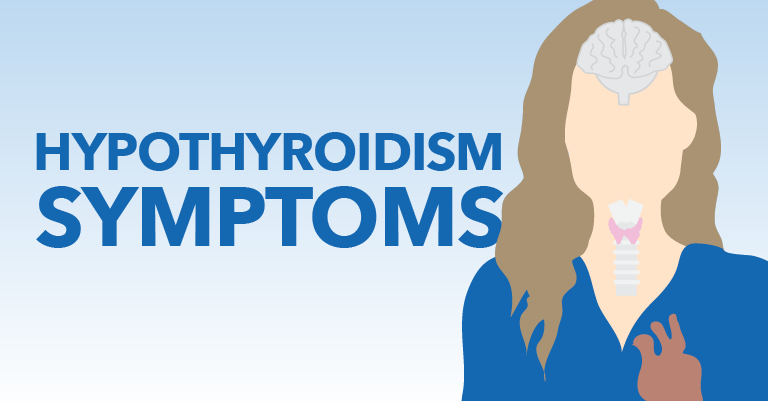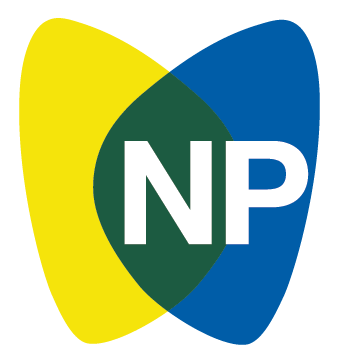Expert Advice

Hypothyroidism1-9
Disclaimer: The information provided is for educational purposes only and does not substitute professional medical advice. Consult a medical professional or healthcare provider before beginning any exercise, fitness, diet, or nutrition routine.
Of the 30 million people suffering from a thyroid condition, hypothyroidism is the most common and occurs when your thyroid does not produce enough thyroid hormone.
Symptoms1-9
- Problems Concentrating
- New or worsening depression
- Moodiness
- Forgetfulness
- Goiter (enlarged thyroid)
- Hair loss, brittle hair & nails
- Puffy face
- Hoarseness
- Slowed heart rate
- Constipation
- Weight gain & fluid retention
- Elevated cholesterol
- Heavy and/or irregular menstrual cycles
- Infertility
- Loss of energy & persistent fatigue
- Increased cold sensitivity
- Joint aches
- Muscle cramps and stiffness
- Numbness or tingling
- Dry/itchy skin
REFERENCES: 1.American Association of Clinical Endocrinology. Hypothyroidism. Updated December, 2016. Accessed June 15, 2021. http://www.thyroidawareness.com/hypothyroidism. 2. Hormonal Health Network. Hypothyroidism Fact Sheet. N.p.: Hormonal Health Network, n.d. Hormone. Endocrine Society. Updated November, 2019. Accessed June 15, 2021. https://www.hormone.org/diseases-and-conditions/hypothyroidism 3. Harvard Medical School. Thyroid Disorders. Fort Dodge: Harvard Medical School, n.d. Patient Education Center. Harvard Medical School. Accessed June 15, 2021. https://www.health.harvard.edu/topics/thyroid 4. Jonklaas J, Bianco AC, Bauer AJ, et al. Guidelines for the treatment of hypothyroidism: prepared by the American Thyroid Association Task Force on thyroid hormone replacement. Thyroid. 2014;24(12):1670-1751. doi: 10.1089/ thy.2014.0028 5. Feldman AZ, Shrestha RT, Hennessey JV. Neuropsychiatric manifestations of thyroid disease. Endocrinol Metab Clin North Am. 2013;42(3):453-476. 6. Mayo Clinic. Hypothyroidism (underactive thyroid). Accessed June 22, 2021. https://www.mayoclinic.org/diseases-conditions/hypothyroidism/symptoms-causes/syc-20350284. 7. Verma I, Sood R, Juneja S, Kaur S. Prevalence of hypothyroidism in infertile women and evaluation of response of treatment for hypothyroidism on infertility. Int J Appl Basic Med Res. 2012;2(1):17-19. doi: 10.4103/2229-516X.96795 8. Gupta N, Arora M, Sharma R, Arora KS. Peripheral and central nervous system involvement in recently diagnosed cases of hypothyroidism: an electrophysiological study. Ann Med Health Sci Res. 2016;6(5):261-266. doi: 10.4103/amhsr.amhsr_39_16 9. Szczepanek-Parulska E, Hernik A, Ruchala M. Anemia in thyroid diseases. Pol Arch Intern Med. 2017;127(5):352-360. doi: 10.20452/pamw.3985
Note that DTE products, including NP Thyroid®, have not been reviewed by the FDA for safety or efficacy.
IMPORTANT RISK INFORMATION, INCLUDING BOXED WARNING & INDICATIONS
Important Risk Information
Drugs with thyroid hormone activity, alone or together with other therapeutic agents, have been used for the treatment of obesity. In euthyroid patients, doses within the range of daily hormonal requirements are ineffective for weight reduction. Larger doses may produce serious or even life-threatening manifestations of toxicity, particularly when given in association with sympathomimetic amines such as those used for their anorectic effects.
- NP Thyroid® is contraindicated in patients with uncorrected adrenal insufficiency, untreated thyrotoxicosis, and hypersensitivity to any component of the product.
- In the elderly and in patients with cardiovascular disease, NP Thyroid® should be used with greater caution than younger patients or those without cardiovascular disease.
- Use of NP Thyroid® in patients with diabetes mellitus or adrenal cortical insufficiency may worsen the intensity of their symptoms.
- The therapy of myxedema coma requires simultaneous administration of glucocorticoids.
- Concomitant use of NP Thyroid® with oral anticoagulants alters the sensitivity of oral anticoagulants. Prothrombin time should be closely monitored in thyroid-treated patients on oral anticoagulants.
- In infants, excessive doses of NP Thyroid® may produce craniosynostosis.
- Partial loss of hair may be experienced by children in the first few months of therapy but is usually transient.
- Adverse reactions associated with NP Thyroid® therapy are primarily those of hyperthyroidism due to therapeutic overdosage.
- Many drugs and some laboratory tests may alter the therapeutic response to NP Thyroid ®. In addition, thyroid hormones and thyroid status have varied effects on the pharmacokinetics and actions of other drugs. Administer at least 4 hours before or after drugs that are known to interfere with absorption. Evaluate the need for dose adjustments when regularly administering within one hour of certain foods that may affect absorption.
- NP Thyroid® should not be discontinued during pregnancy, and hypothyroidism diagnosed during pregnancy should be promptly treated.
Indications
NP Thyroid® (thyroid tablets, USP) is a prescription medicine that is used to treat a condition called hypothyroidism from any cause, except for cases of temporary hypothyroidism, which is usually associated with an inflammation of the thyroid (thyroiditis). It is meant to replace or supplement a hormone that is usually made by your thyroid gland.
NP Thyroid® is also used in the treatment and prevention of normal functioning thyroid goiters, such as thyroid nodules, Hashimoto’s thyroiditis, multinodular goiter, and in the management of thyroid cancer.
Revised
10/2023
You Are About To Leave This Website
By clicking continue, this link will take you to a website to which Alora Pharmaceuticals’ Policies & Terms of Use do not apply.
